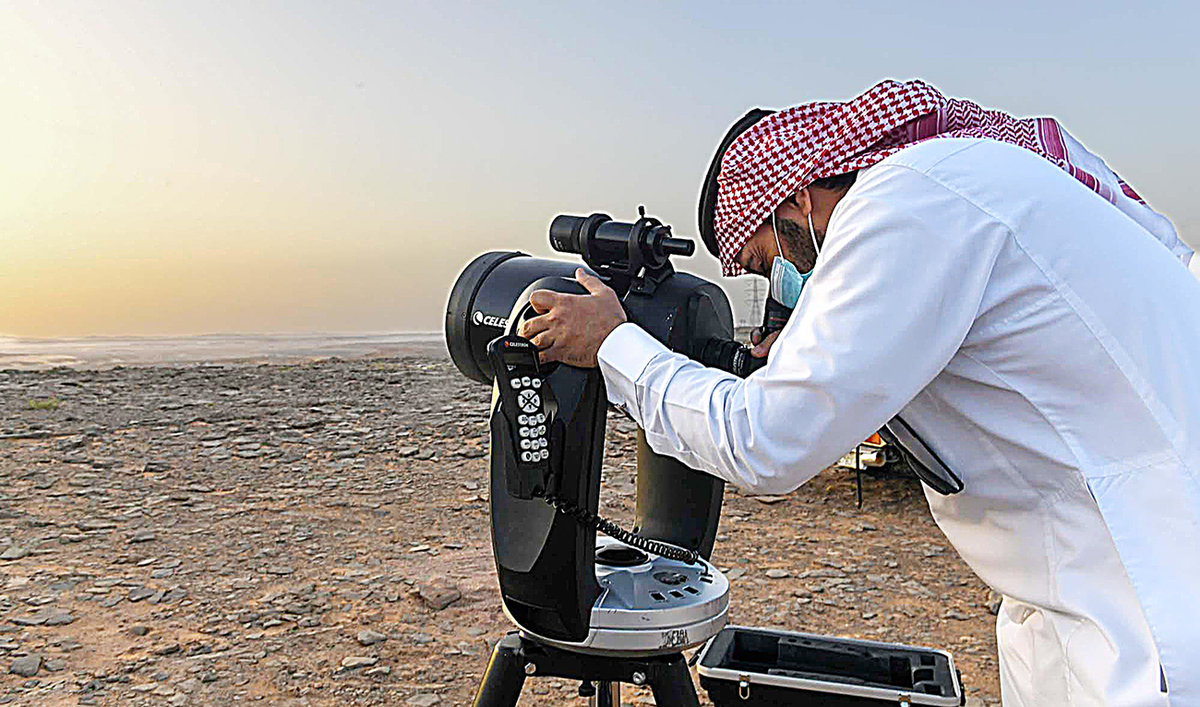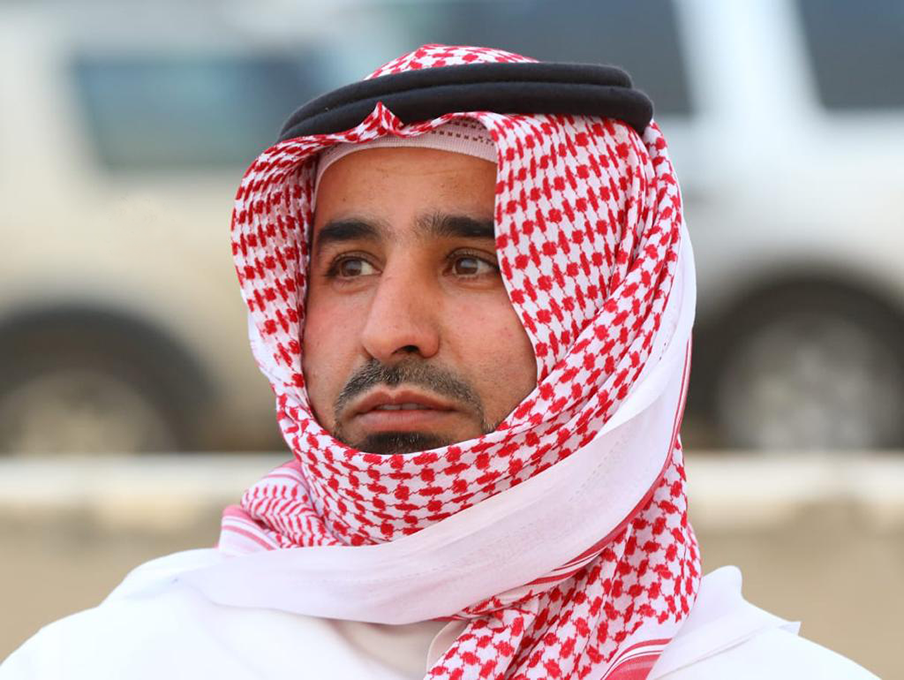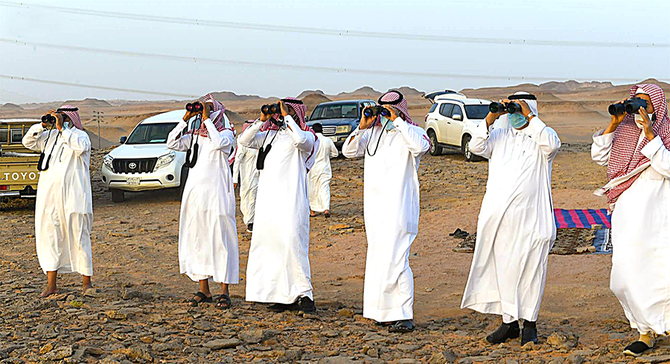MAKKAH: When it comes to sighting the new crescent moon, one Saudi family is light years ahead of most.
For more than 100 years, members of the hawk-eyed Al-Barghash family have been spotting the moon each month without the use of telescopes or other modern devices.
The tradition has been passed down through generations of the family from the central Saudi city of Tumair, 140 km northwest of Riyadh.
“This is a gift from God that we enjoy and seek to teach to our children after we have inherited it from our parents and ancestors,” Mutaib Al-Barghash told Arab News.
He said his father and friends used to stand on a watchtower to sight the crescent of Ramadan, Eid Al-Fitr, and the month of Dhu Al-Hijjah.
“My father trained me and my brothers on crescent sighting until it became a passion for us. We endeavored to develop the site until it became an observatory that now receives people wishing to train on crescent sighting,” he added.
He noted that the purpose of training and education in the “art of crescent sighting” was to abide by the words of Prophet Muhammad who instructed Muslims to start fasting on seeing the crescent of Ramadan and stop fasting on seeing the crescent of Shawwal. 
HIGHLIGHTS
• For more than 100 years, members of the hawk-eyed Al-Barghash family have been spotting the moon each month without the use of telescopes or other modern devices.
•The tradition has been passed down through generations of the family from the central Saudi city of Tumair, 140 km northwest of Riyadh.
Al-Barghash’s grandfather, Ibrahim, was a cleric well-known for his 20/20 vision. “My father Abdulrahman inherited this talent from him. All the family was renowned for its sharp sight.”
He pointed out that he and his brothers were all expert crescent sighters who were only ever hindered by cloudy skies, with climatic conditions sometimes differing between observatories in Tumair, Hautat Sudair, and Shaqra.
Located on mountain plateaus, he said these were the three best places to spot the crescent moon because of their clear skies. “We have been climbing that plateau monthly for 16 years to sight the crescent of each month,” he added.
On the prospect of technology making the role of crescent sighters redundant, Al-Barghash said that the old and new ways complemented each other.
“Our sons accompany us each month to understand the science and comprehend it properly. We are also training more than five people at Tumair observatory to be the sighters of the future,” he added.

Mutaib Al-Barghash
Saudi Arabia attaches great importance to the process of crescent sighting and its Supreme Court ensures the reliability of sighters using several criteria, most notably a comprehensive medical examination and eye tests. Results are then submitted to a special committee affiliated to the Ministry of Justice and accredited by royal decree.
Minister of Justice Dr. Walid Al-Samaani follows up on the work of the committee.
Judges are assigned to accompany sighters at observatories throughout the Kingdom and are supervised by King Abdulaziz City for Science and Technology (KACST) with the participation of specialists in crescent sighting and astronomy, along with representatives of government agencies.
Astronomers are now using computers in crescent sighting to accurately determine variables.
Zaki bin Abdulrahman Al-Mustafa, KACST professor
Suitable observatory sites are selected according to geographic, scientific, and astronomic criteria. KACST’s astronomical observatories are equipped with state-of-the-art instruments, telescopes, binoculars, and thermal cameras to sight the crescents and are linked to the Supreme Court via live video broadcasts.
The Supreme Court closely follows the process of crescent sighting, examining the astronomical and mathematical reports issued by government agencies on the moon’s movements, and weather conditions in each monitoring area.
Sighters are interrogated by the committee to verify the validity of their sighting before an announcement is made.
Zaki bin Abdulrahman Al-Mustafa, professor of astronomy at KACST’s National Center for Astronomy and Navigation, said astronomers were now using computers in crescent sighting to accurately determine variables such as sunrise, sunset, moonset, sunrise and sunset positions, angles between the sun, the intensity of its illumination, and the crescent path in the sky.
The center is a world leader in the field of crescent sighting and has published many scientific papers in trade magazines while annually producing a booklet of related data. Al-Mustafa and his team were able to sight the crescent several times in broad daylight with high-sensitivity cameras and tracked the moon until sunset.
The team obtained two patents for the scientific milestone, and work is underway to develop the technique for sighting in difficult climatic conditions, such as clouds and dust, by designing special filters.































